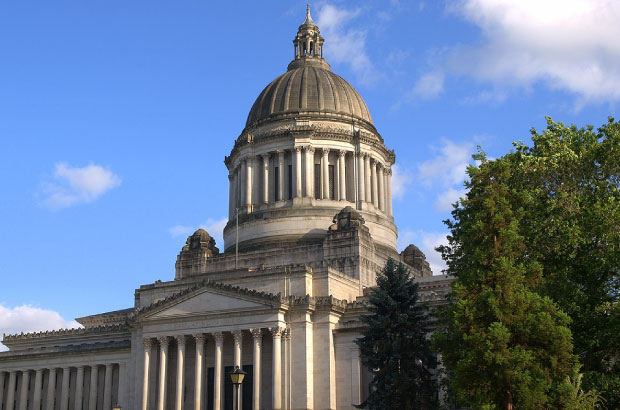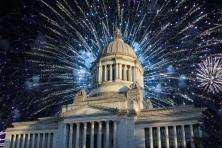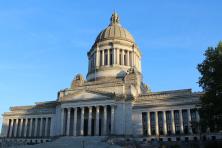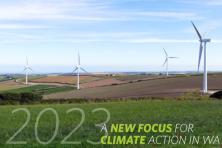After last week’s major mid-session deadline for the legislators to keep considering policies, here’s a summary of what’s still moving in Olympia.
Clean Buildings
The House passed HB 1770 Stronger Energy Codes, a bill to address emissions in new buildings by allowing local jurisdictions to go beyond the state’s minimum energy efficiency requirements for homes, townhomes, and small multifamily buildings if they choose. HB 1770 would also ensure that all new buildings are ultra-efficient and solar-ready post-2034. The bill passed the House and is scheduled for an executive session in the Senate Energy Environment Technology Committee on 2/23.
Unfortunately the House failed to pass key legislation, HB 1767 Targeted Electrification, to allow public utilities to offer incentive programs to their customers to switch from fossil fuels to efficient heat pumps. A familiar cadre of voices testified in opposition to the bill including Washington’s gas utilities, business interest groups, and others.
Clean Transportation
You may have already read about Move Ahead Washington and the potential for a major transportation package in 2022. It includes historic amounts in transit, active transportation, and transportation electrification—it is a $16.8 billion package even without a gas tax. With over $5 billion coming from Climate Commitment Act funds, we are tracking this funding to ensure that spending aligns with CCA and our greenhouse gas limits. We are most excited about: investments in vehicle electrification, ferry electrification, expanded transit service and electric buses, and bike and pedestrian projects.
Clean Energy Siting (EFSEC)
We need to replace our expansive fossil fuel infrastructure—oil refineries, natural gas power plants, and more—with new clean replacements. HB 1812 improves siting laws by providing clarity for project proponents around the state’s expectations, certainty and predictability around review timeline, and more. The House passed the policy and is scheduled for an executive session in the Senate Environment, Energy, and Technology Committee on 2/23.
Zero Emission Lawn Equipment
Did you know running a gas leaf blower for an hour produces the same amount of smog-forming pollution as driving a 2017 Toyota Camry 1,100 miles? Fossil-fuel powered lawn equipment is a significant source of pollution in our communities, and SB 5543 & HB 1918 provide incentives for purchasing zero emissions lawn equipment. Both are deemed “necessary to implement the budget” so they are not subject to cutoffs, and are awaiting passage in their respective fiscal committees.
Landfill Methane Emissions
Landfills are a significant source of methane, a powerful greenhouse gas with a far larger short-term impact than CO2. HB 1663 reduces methane emissions in Washington by requiring high-emitting landfills to install methane gas capture and collect methane. It passed the House and is scheduled for executive session in the Senate Environment, Energy & Technology Committee on 2/23.
Organics Management
Organic waste (yard waste, food waste, and other organic material) makes up almost 30% of Washington’s waste stream and releases methane into the atmosphere. HB 1799 works to prevent those emissions at their source by setting a statewide target for diversion of organic material and also a separate target for edible food diversion to food rescue groups. The bill passed the House and is scheduled for an executive session in the Senate Environment, Energy & Technology Committee on 2/23.
Cities want to do more on climate. Help them and take action on HB 1770 Stronger Energy Codes
This bill has already passed the House. Please take a minute to tell your senator that you support allowing our cities to move more quickly toward healthier, more energy efficient and climate-friendly construction for all new homes.





